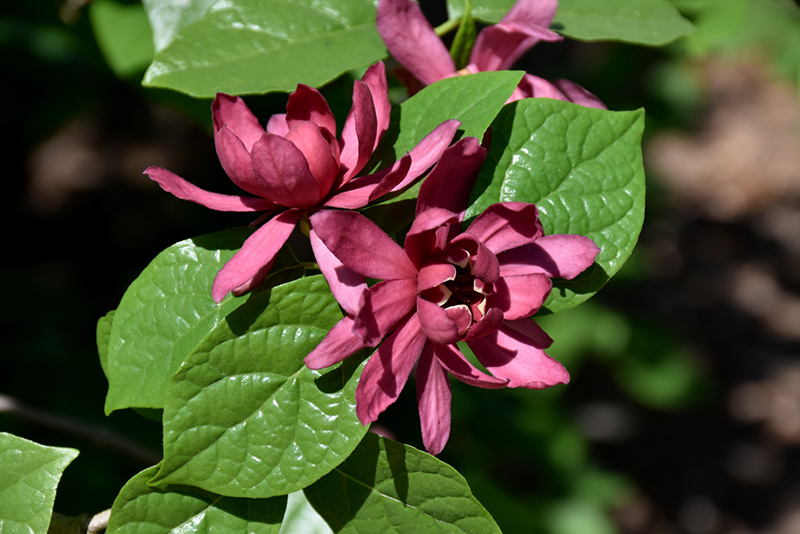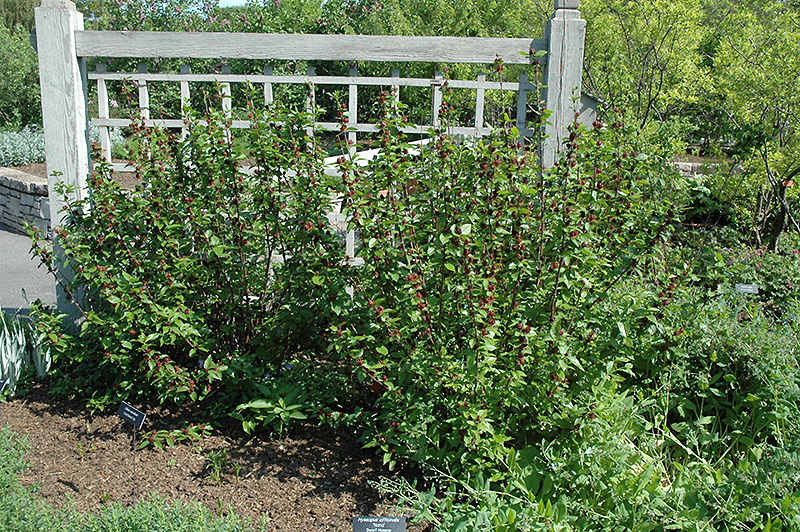>> Home
Height: 8 feet
Spread: 9 feet
Sunlight:
![]()
![]()
Hardiness Zone: 4
Other Names: Carolina Allspice, Spicebush, Strawberry Shrub
Description:
A large shrub highly prized for its strong spicy fragrance originating from interesting brownish purple flowers; plant along a walkway or driveway where the flower fragrance can be enjoyed by passers-by
Ornamental Features
Common Sweetshrub has fragrant burgundy spider-like flowers along the branches from early spring to mid summer. It has dark green deciduous foliage. The pointy leaves turn yellow in fall.
Landscape Attributes
Common Sweetshrub is a dense multi-stemmed deciduous shrub with a more or less rounded form. Its average texture blends into the landscape, but can be balanced by one or two finer or coarser trees or shrubs for an effective composition.
This is a relatively low maintenance shrub, and is best pruned in late winter once the threat of extreme cold has passed. Deer don't particularly care for this plant and will usually leave it alone in favor of tastier treats. It has no significant negative characteristics.
Common Sweetshrub is recommended for the following landscape applications;
- Mass Planting
- General Garden Use
Planting & Growing
Common Sweetshrub will grow to be about 8 feet tall at maturity, with a spread of 9 feet. It tends to fill out right to the ground and therefore doesn't necessarily require facer plants in front, and is suitable for planting under power lines. It grows at a medium rate, and under ideal conditions can be expected to live for approximately 20 years.
This shrub does best in full sun to partial shade. It is very adaptable to both dry and moist locations, and should do just fine under average home landscape conditions. It may require supplemental watering during periods of drought or extended heat. It is not particular as to soil type or pH. It is somewhat tolerant of urban pollution. This species is native to parts of North America.

